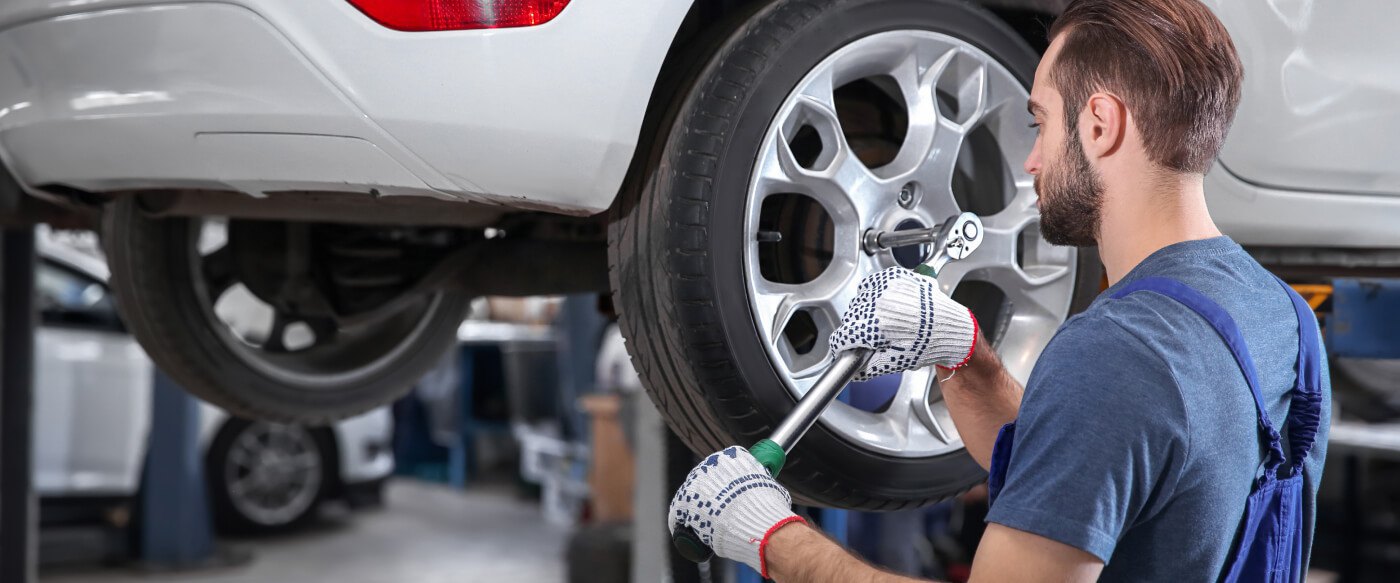The Web Link Between Tire Service and Fuel Performance
Amongst the various factors that affect gas performance, tire service stands out as a crucial aspect that commonly goes neglected. The detailed relationship in between tire upkeep and fuel economy is a testimony to the elaborate functions of an automobile.
Importance of Proper Tire Inflation
Appropriate tire inflation is an essential consider taking full advantage of fuel performance and making sure optimal automobile efficiency. When tires are underinflated, it produces much more moving resistance, creating the engine to function more challenging and shed even more gas to keep the exact same rate. On the other hand, overinflated tires can lead to a harsher trip, unequal tire wear, and decreased traction. To find the advised tire stress for your vehicle, describe the owner's manual or the sticker situated on the vehicle driver's side door jamb.
Keeping the right tire stress not just boosts gas effectiveness yet likewise enhances driving safety and security. Effectively filled with air tires give much better handling, stopping, and general efficiency on the roadway. In addition, they add to extending the life expectancy of the tires, saving you money over time by reducing the frequency of substitutes. Consistently inspecting and adjusting tire stress, especially in the past lengthy trips, is an easy yet efficient means to maximize your car's fuel economy and make certain a smooth driving experience.
Influence of Tire Tread Deepness
Preserving the recommended tire pressure is necessary for optimum lorry efficiency and fuel performance; similarly, the tread deepness of your tires plays an essential function in making certain security and grip on the road. Tire walk deepness directly influences the capability of your tires to grasp the roadway surface area, especially in wet or unsafe conditions. On a regular basis evaluating your tire walk deepness and replacing tires when needed is a basic yet effective way to promote both safety and gas performance on the road.
Function of Wheel Alignment in Effectiveness
Guaranteeing accurate wheel alignment is important for optimizing automobile effectiveness and taking full advantage of gas economic situation. Proper wheel placement entails changing the angles of the wheels to manufacturer specifications, ensuring that they are alongside each various other and perpendicular to the ground. When wheels are misaligned, it can lead to unequal tire wear, increased rolling resistance, and lowered fuel effectiveness.

Furthermore, accurate wheel positioning can also enhance handling and stability, reducing the amount of energy needed check this site out to maneuver the lorry (discount you can try here tires morris il). By lessening unnecessary rubbing and drag, proper wheel placement plays a critical role in improving total car effectiveness and fuel economy. Routine wheel placement checks and modifications are essential for keeping optimum efficiency and maximizing fuel financial savings
Connection Between Tire Upkeep and MPG
A crucial element of enhancing gas efficiency in automobiles is the upkeep of tires and their direct influence on miles per gallon (MPG) Proper tire maintenance plays an essential duty in maximizing fuel economy. One essential aspect impacting MPG is tire stress. Underinflated tires enhance rolling resistance, creating the engine to function tougher and melt more gas. On the other hand, overinflated tires reduce the contact patch with the road, resulting in uneven wear and lowered gas effectiveness. Consistently checking and preserving the proper tire pressure can substantially boost MPG.
Furthermore, tire step deepness also affects fuel performance. By guaranteeing tires have appropriate step depth, drivers can boost both safety and fuel economic climate.
In significance, correct tire maintenance, consisting of surveillance tire stress and tread depth, is directly linked to attaining ideal MPG. By incorporating regular tire examinations and maintenance right into a vehicle treatment regimen, motorists can not only prolong tire life yet likewise enhance gas effectiveness, eventually saving cash and reducing environmental influence.

Tips for Fuel-Efficient Tire Care
Offered the important relationship between tire upkeep and gas efficiency, implementing reliable techniques for maximizing tire treatment is vital to enhancing total car performance. To make certain fuel-efficient tire treatment, normal tire stress checks are necessary. Properly inflated tires reduce rolling resistance, improving gas performance and extending tire lifespan. In addition, keeping correct wheel alignment and harmonizing aids disperse weight uniformly, protecting against uneven tire wear and enhancing gas intake. Turning tires at recommended periods advertises even visit the site walk wear, enhancing gas performance by guaranteeing all tires contribute similarly to vehicle performance. It is also important to examine tires for signs of damages, such as cuts, punctures, or protrudes, as these concerns can influence fuel effectiveness and overall safety and security. Choosing tires with low rolling resistance can considerably enhance gas economic climate. By integrating these fuel-efficient tire care ideas into a regular maintenance timetable, motorists can take full advantage of fuel performance, minimize operating prices, and lengthen the life of their tires.
Conclusion
To conclude, correct tire service plays an essential function in gas efficiency. Keeping right tire rising cost of living, keeping an eye on tread depth, and guaranteeing wheel positioning can all add to making the most of miles per gallon. By regularly maintaining tires and adhering to fuel-efficient tire care pointers, motorists can optimize their car's performance and lower gas consumption. It is necessary to focus on tire upkeep to not just save money on gas expenses yet likewise to promote general vehicle performance.